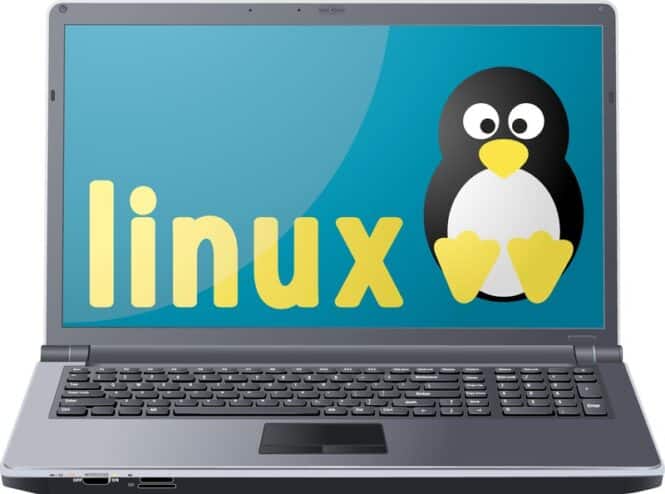Linux Kiosk Manufacturers
Linux has a long history with kiosk mode but often it is considered “less” than Windows, especially in the corporate world where you have a host of Microsoft Certified support people and adding or removing a computer from the network is centrally managed. Pretty good reasons actually.
These days you have a couple of OTS options with Linux. Elotouch for example is a super-major provider and has specific LInux models. KioWare has the kiosk mode lockdown browser for Linux. Any number of PC and computing options will support Linux (usually Debian). It was 2023 or 2022 when the break-through Linux kiosk occurred and that was the Samsung Kiosk News — All-In-One Kiosk — it runs Tizen which is Linux-based. Restaurants love them for inexpensive self-order. Super reliable (unlike Windows). IT Networking people still dioscrimminate against Linux and also IoS for that matter as it means more work for them trying to keep their Windows units safe so they don’t look bad in comparison.
We don’t really think about all of the devices that run on Linux. 40% of the TVs in the world run on Linux (Samsung and LG). Which is more reliable? Your TV or your Windows PC? Which is lower cost, which gets infected, which updates itself better? The list goes on and on. And let’s not forget “appliances” like refrigerators, washers, dryers. Android is good but it is based on Linux. Apple IoS is nice but it too is based on linux.
Before we “talk about” Linux here are the current kiosk manufacturers that support Linux out of the box (hardware and software).
- Olea Kiosks
- Pyramid Computer
- KioWare
- Nanonation
- KIOSK Information Systems
- LG Electronics Business Solutions
- Panasonic Restaurant Solutions
- Peerless-AV
- Intel Kiosk
- REDYREF
- Elotouch
Linux Kiosk News
- Linux Kiosk Mode – KioWare
- Linux Kiosk – I-Series Elo Slate Linux Debian 10
- Linux Kiosk Mode – Lockdown Browser from KioWare
- Product Test – Raspberry Pi 400 Kiosk
- Category Archives: Linux kiosk
- Linux digital signage Archives
- FAQ – Power Management Under Linux or Android – Kiosk Industry
- Best Digital Signage Linux – also Raspberry Pi support
- Kiosk Mode Categories
- Linux Kiosk – Porteus Kiosk
Ready for some talk and discussion? Here is an overview.
Back Then In the corporate network – advantages of Windows:
- Active Directory and Domain Services: Windows Server offers Active Directory, a robust directory service that centralizes user authentication, access control, and network management. This makes it easier to manage users, computers, and resources in a corporate network environment.
- Group Policy Management: Windows Active Directory includes Group Policy, which allows administrators to define and enforce security policies, configurations, and restrictions across the network. This helps ensure consistent security settings and configurations for all connected devices.
- Integration with Microsoft Products: Many organizations use Microsoft’s suite of products such as Microsoft Office and Microsoft 365. Windows operating systems seamlessly integrate with these products, providing a cohesive environment for users.
- For Kiosks — kiosks used to come with a wide range of devices. Coin acceptors, bill acceptors, scanners, printers of all types, passport readers, cameras, card swipes, check scanners, scanners, anything that could plug into an RS232 port or a USB port automatically came with Windows support.
What About Now and The Cloud
Those local Windows applications are now all in the cloud. On ChromeOS which is used for Chromebooks, you can now run native Windows apps. A die-hard Adobe graphics person is better off on Apple and always has been.
Now the OS is dynamically loaded from the cloud and not a bunch of DLLs residing locally.
The cloud and linux support a WIDER range of devices and platforms now. A $100 Raspberry Pi does just fine in some self-service applications and is more reliable than a PC, uses less energy and takes up less space.
Windows did take a stab at the appliance market with Windows CE but it was abandoned.
Linux History
- From Wikipedia — Samsung and Tizen (/ˈtaɪzɛn/) is a Linux-based mobile operating system backed by the Linux Foundation, developed and used primarily by Samsung Electronics. The project was originally conceived as an HTML5-based platform for mobile devices to succeed MeeGo. Samsung merged its previous Linux-based OS effort, Bada, into Tizen, and has since used it primarily on platforms such as wearable devices and smart TVs. Much of Tizen is open source software, although the software development kit contains proprietary components owned by Samsung, and portions of the OS are licensed under the Flora License, a derivative of the Apache License 2.0 that grants a patent license only to “Tizen certified platforms”. In May 2021, Google announced that Samsung would partner with the company on integrating Tizen features with its Android-derived Wear OS, and committed to use it on future wearables, leaving Tizen to be mainly developed for Samsung Smart TV.
- From Wikipedia — LG and WebOS — webOS, also known as LG webOS and previously known as Open webOS, HP webOS and Palm webOS,[2] is a Linux kernel-based multitasking operating system for smart devices such as smart TVs that has also been used as a mobile operating system. Initially developed by Palm, Inc. (which was acquired by Hewlett-Packard), HP made the platform open source, at which point it became Open webOS. The operating system was later sold to LG Electronics, and was made primarily a smart TV operating system for LG televisions as a successor to LG Netcast. In January 2014, Qualcomm announced that it had acquired technology patents from HP, which included all the webOS and Palm patents; LG licenses them to use in their devices. Various versions of webOS have been featured on several devices since launching in 2009, including Pre, Pixi, and Veer smartphones, TouchPad tablet, LG’s smart TVs since 2014, LG’s smart refrigerators and smart projectors since 2017.

